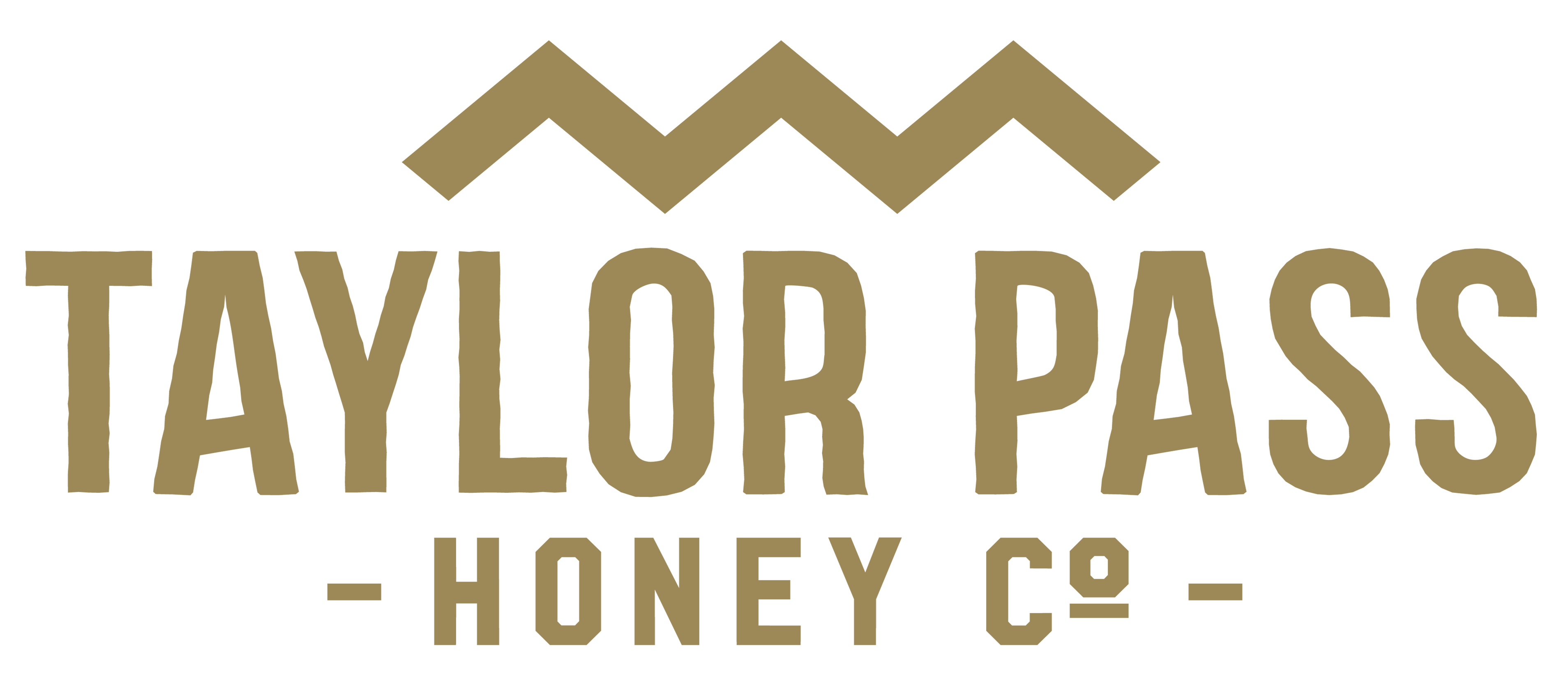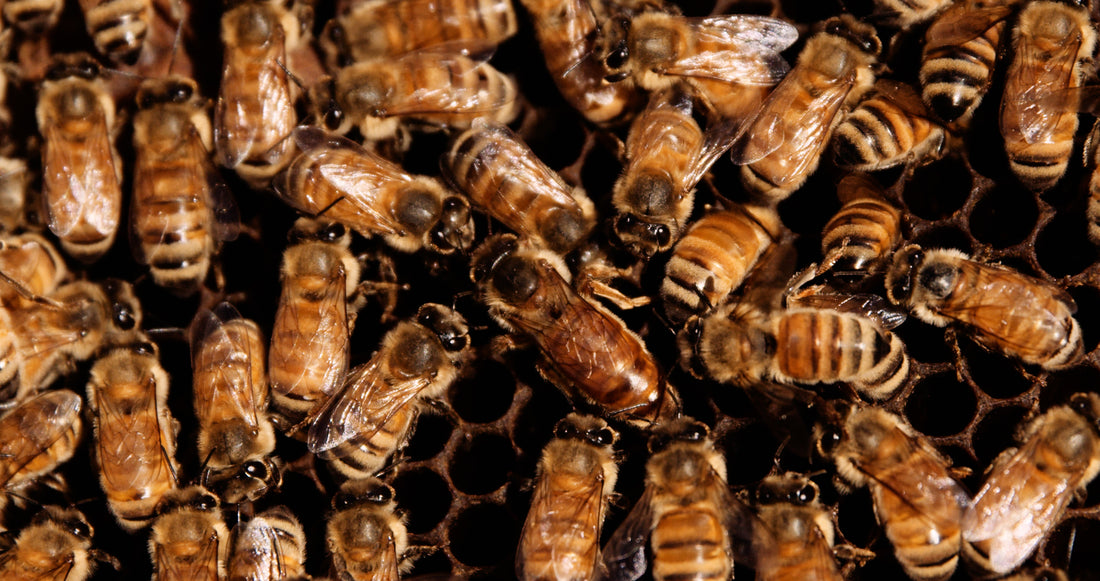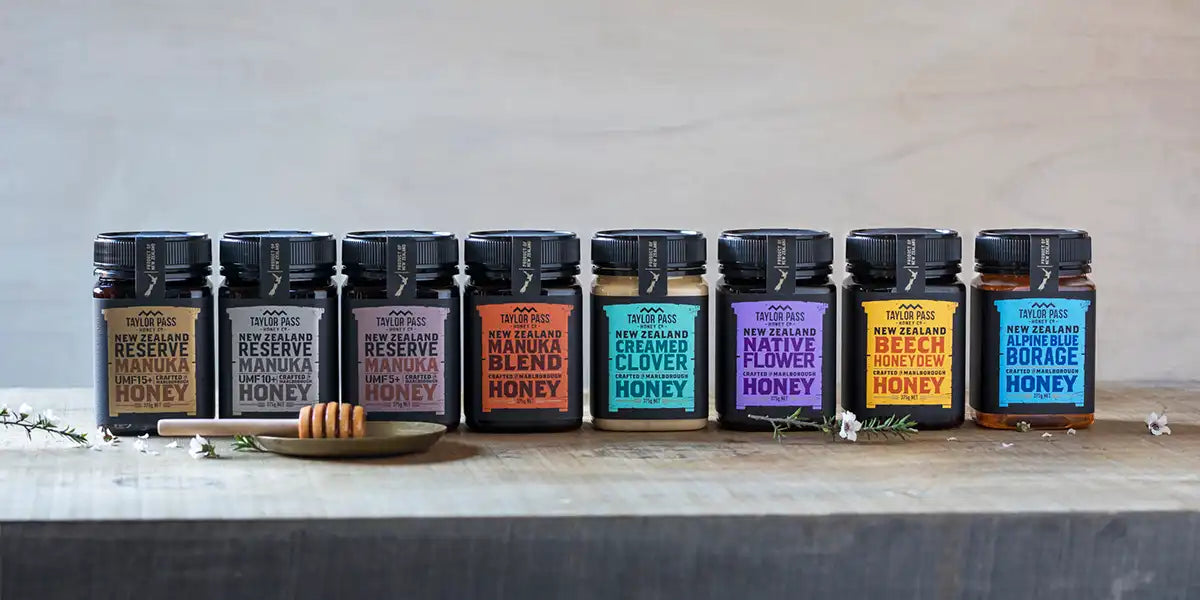8 Facts You Didn’t Know About Honey - A Comparison Between US and New Zealand Honey
Honey is produced all over the world. It is flavorful, sweet, and nutritious; however not all kinds of honey are the same. The United States produces tons of honey each year, with unfortunately the majority of it being highly processed. New Zealand, on the other hand, offers a unique alternative. Far less processed, it is the only country to produce Mānuka Honey. Mānuka honey has a much larger nutritional foundation than other unprocessed honey found across the world. Here are several facts about honey and honey bees you may not know.
1. Not All Honey Is Highly Processed
Many honey products in the United States are commercially produced and highly processed, causing them to lose much of their nutritive value. There are some smaller honey producers throughout the United States that do not over filter and process during production. In New Zealand, Taylor Pass Honey uses sustainable beekeeping practices to ensure a Manuka Honey straight from the hive to the jar. This allows you to receive the freshest, most nutritious honey on the market. Always look for honey that has not been over processed.
2. Honey Bees Have Only Been in New Zealand Since 1839
One little-known fact about New Zealand honey is that honey bees are not native to the area. The first honey bees were introduced to New Zealand by a woman named Mrs. Bundy in 1839. The honey bees were brought from Europe and were allowed to spread throughout the area.

3. Number of Beekeepers in the United States vs New Zealand
The number of beekeepers in the United States and New Zealand differs greatly. In the United States, there are over 212,000 beekeepers. While many of these beekeepers have smaller production numbers and sell to local markets, a large number have commercial enterprises that use mobile beehives so they can travel across the US where pollen is easily available, often following almond pollination.
In New Zealand, there are less than 10,000 beekeepers, 75% of which are hobbyists with 10 hives or less. They operate 100% environmentally friendly honey operations that revolve around the Mānuka honey market, as well as the other incredible floral honey. Mānuka bushes only grow in New Zealand and can only be harvested for a few weeks during the year. Also, New Zealand beekeepers do not transport their hives across large distances and in winter, their bees go to sleep…
4. Mānuka Honey vs. Commercial Honey
Mānuka honey only comes from the Mānuka bush found in New Zealand. Commercial honey produced in the United States comes from pollen that has been collected from many different sources, is highly processed and results in fewer nutrients.
5. Different Types of Honey in the United States
Monofloral Mānuka honey is drawn from only one source, the flowers from the Mānuka bush. Other honey found in the United States comes from a variety of sources. Walk through your local grocery store and you will see many different types of honey lining the shelves. They can include:
- Clover honey
- Apple blossom honey
- Orange blossom honey
- Rose honey
- Floral honey
Each type of honey comes from either a single source (monofloral) or multiple sources (multifloral).

6. Commercial Honey vs Vertically integrated honey companies
Commercial honey products are produced on a very large scale. Many commercial honey products are highly processed and made from honey sourced across the US and also from overseas countries, so it is important to check the label carefully. Taylor Pass Honey in New Zealand, on the other hand, is a vertically integrated company, which means that we are the beekeeper and we harvest our own honey. We then pack this and ship it to honey lovers around the world. The goal is to preserve as much of the honey's natural goodness as possible.
7. Mānuka Honey As A Superfood
Mānuka honey is known as a super-food when it comes to nutritional value. When sold in its freshest state, all of the honey's nutrients stay intact. Taylor Pass Honey produces authentic and pure Mānuka Honey, allowing you to receive all of its antibacterial, antiviral, and antimicrobial properties.
8. There Is Only One Type of Honey Graded on the UMF Scale
The UMF grading, Unique Mānuka Factor, can only be applied to monofloral honey that is made from the pollen of the Mānuka bush, packed in New Zealand under the strictest requirements to certify authenticity, origin, shelf life and purity. While other honey types may be nutritious, UMF honey guarantees the purity of Mānuka honey.
You can choose from many different types of honey on American retail shelves, but understanding the UMF grading system when it comes to choosing Manuka honey is the best way to choose the appropriate honey for your needs. At Taylor Pass Honey, all of our products are 100% natural and produced using the safest, most environmentally-friendly honey in the world.


